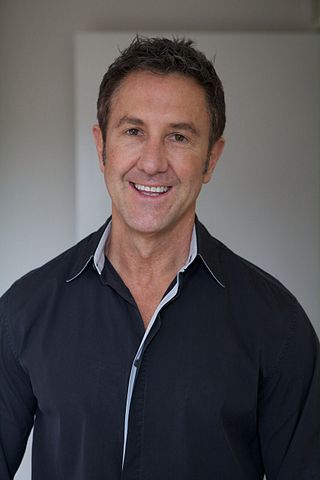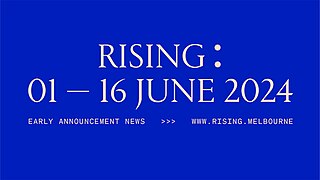
Opera Australia is the principal opera company in Australia. Based in Sydney, New South Wales, its performance season at the Sydney Opera House accompanied by the Opera Australia Orchestra runs for approximately eight months of the year, with the remainder of its time spent at the Arts Centre Melbourne, where it is accompanied by Orchestra Victoria. In 2004, the company gave 226 performances in its subscription seasons in Sydney and Melbourne, Victoria, attended by more than 294,000 people.

The cultural life of Sydney is dynamic and multicultural. Many of the individual cultures that make up the Sydney mosaic are centred on the cultural, artistic, ethnic, linguistic and religious communities formed by waves of immigration. Sydney is a major global city with a vibrant scene of musical, theatrical, visual, literary and other artistic activity.
Adelaide Fringe, formerly Adelaide Fringe Festival, is Australia’s biggest arts festival and is the world's second-largest annual arts festival, held in the South Australian capital of Adelaide. Between mid-February and mid-March each year, it features more than 7,000 artists from around Australia and the world. Over 1,300 events are staged in hundreds of venues, which include work in a huge variety of performing and visual art forms. The Fringe features many free events occur alongside ticketed events for the duration of the festival.

The Adelaide Festival of Arts, also known as the Adelaide Festival, an arts festival, takes place in the South Australian capital of Adelaide in March each year. Started in 1960, it is a major celebration of the arts and a significant cultural event in Australia.
The Melbourne International Film Festival (MIFF) is an annual film festival held over three weeks in Melbourne, Victoria, Australia. It was founded in 1952 and is one of the oldest film festivals in the world following the founding of the Venice Film Festival in 1932, Cannes Film Festival in 1939 and Berlin Film Festival in 1951.

Perth Festival, named Perth International Arts Festival (PIAF) between 2000 and 2017, and sometimes referred to as the Festival of Perth, is Australia's longest-running cultural festival, held annually in Western Australia. The program features contemporary and classical music, dance, theatre, performance, literature and ideas, visual arts, large-scale public works. The main events of the festival take place every year, from February to March and the film program now known as Lotterywest Films runs from November to April, as part of the Perth Festival.

Adelaide Festival Centre, Australia's first capital city multi-purpose arts centre and the home of South Australia's performing arts, was built in the 1970s, designed by Hassell Architects. Located on Kaurna Yarta, the Festival Theatre opened in June 1973 with the rest of the centre following soon after. The complex includes Festival Theatre, Dunstan Playhouse, Space Theatre and several gallery and function spaces. Located approximately 50 metres (160 ft) north of the corner of North Terrace and King William Road, lying near the banks of the River Torrens and adjacent to Elder Park, it is distinguished by its two white geometric dome roofs, and lies on a 45-degree angle to the city's grid.
PolArt is an arts festival that celebrates the Polish cultural heritage of Polish Australians and New Zealanders by presenting the Polish arts. The festival is held every three years in a different state capital in Australia with the first being held in 1975. Events that take place during PolArt cover the artistic disciplines of dance, literature, music, theatre and visual arts. Wellington hosts the next PolArt Festival, commencing 2025.
The National Black Theatre (NBT) was a theatre company run by a small group of Aboriginal people based in the Sydney suburb of Redfern which operated from 1972 to 1977. The original concept for the theatre grew out of political struggles, especially the land rights demonstrations, which at the time were being organised by the Black Moratorium Committee. The centre held workshops in modern dancing, tribal dancing, writing for theatre, karate and photography, and provided a venue for new Aboriginal drama. It also ran drama classes under Brian Syron, whose students included Jack Davis, Freddie Reynolds, Maureen Watson, Lillian Crombie, and Hyllus Maris.

The Great Escape Festival is a four-day music festival held in Brighton and Hove, England every year in May. It is operated by MAMA Festivals and showcases new music from a variety of genres. The festival was founded in 2006 and roughly hosts 500 bands across 30 venues throughout the city. It has been likened to South by Southwest.
Peats Ridge Festival was an Australian sustainable arts and music festival, held in Glenworth Valley, Peats Ridge, one hour's drive north of Sydney and a 90-minute drive from Newcastle, New South Wales. Established in 2004, one year after the death of the founder of the Glenworth Valley Horse Riding facility, the Festival was recognised as one of the world's leading sustainability events. It ran for three days around New Year's Eve, from 29 December to 1 January. The event organisers relied heavily on volunteer support, and volunteer service was rewarded with a free ticket. That type of employment strategy was one of many of the sustainable options chosen by the organisers of the festival.

The Seymour Centre is a multi-purpose performing arts centre within the University of Sydney in the Australian city of Sydney. It is located on the corner of City Road and Cleveland Street in Chippendale, south-west of the city centre, in the City of Sydney local government area.
Israeli Australians refers to Australian citizens or permanent residents who are fully or partially of Israeli descent. The population colloquially refer to themselves as Ausraelis.
Fringe World, or Fringe World Festival, is an annual multi-arts fringe festival held in Perth, Western Australia during the city's summer festival season of January/February. The annual program of events features artists and acts from a range of styles including circus, cabaret, comedy, music, dance, theatre, film and visual art.

Carriageworks is a multi-arts urban cultural precinct located at the former Eveleigh Railway Workshops in Redfern, Sydney, Australia. Carriageworks showcases contemporary art and performing arts, as well as being used for filming, festivals, fairs and commercial exhibitions. The largest such venue in Australia, it is a cultural facility of the NSW Government, and receives support from Create NSW and the Australian Government through the Australia Council for the Arts. The centre has commissioned new work by Australian and international artists, and has been home to eight theatre, dance and film companies, including Performance Space, Sydney Chamber Opera and Moogahlin Performing Arts, and a weekly farmers' market has operated there for many years.
Culturescapes is a multidisciplinary Swiss arts festival devoted to inter-cultural exchange. The festival, which takes place in autumn, showcases the cultural landscape of a different region, nation or city. Although based in Basel the festival extends to many other places in Switzerland, such as Aarau, Bern, Chur, Zurich, Geneva or Bellinzona. Founded in the year 2002, the festival mainly focussed on Eastern European countries at the beginning. However, with festival editions devoted to countries like Turkey, Azerbaijan, China or Israel the festival gradually expanded its scope. To mark its tenth anniversary in 2012 Culturescapes focussed on Moscow, for the first time placing the topography of a city at the centre of the festival. The 2013 Balkans festival edition highlighted not only a country but an entire cultural region. 2015 Iceland was presented. At the same time was also announced that in the future the festival will take place in the biennial rhythm. The next two editions took place in 2017 with a focus on Greece and in 2019 with a focus on Poland.

Brett Joseph Sheehy AO an Australian artistic director, producer and curator. He is currently the CEO of the Melbourne Theatre Company (MTC). He was appointed director of three of the five international arts festivals in Australia's State capital cities, namely: Sydney Festival, Adelaide Festival and Melbourne Festival.
Lieven Bertels is a Belgian musicologist, curator and impresario.

Rising is a city-wide arts festival held in Melbourne, Australia. The festival was announced in 2020 as Melbourne's premier arts and culture festival, replacing the Melbourne International Arts Festival and White Night Festival, and is supported by the Victoria State Government. Following two attempts to launch the festival in 2020 and 2021 disrupted by the coronavirus pandemic, Rising has been held annually each June in Melbourne from 2022. The festival has received praise for the depth and variety of its events and First Nations programming, whilst also receiving critiques about its ability to capture the purpose and identity of its predecessors.
Message Sticks Festival, also known for some time as Message Sticks Indigenous Film Festival, was an arts festival celebrating the culture of Aboriginal Australians, based at the Sydney Opera House, between 1999 and 2013. It focused on film for several years, but music, theatre and dance were also showcased. The festival was succeeded by Homeground in 2014.












